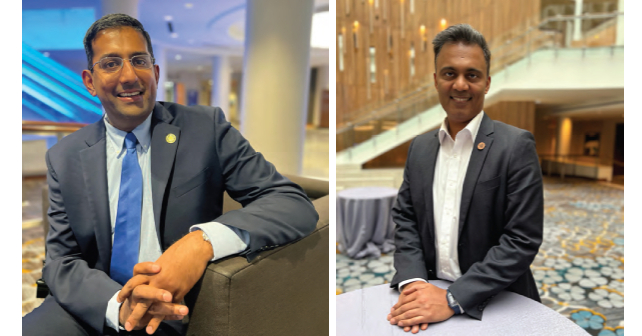
DR. ARVIND VENKAT
Dr. Venkat: I’m a state representative for the 30th legislative district in Pennsylvania, which is the North Hills suburbs of Pittsburgh.
Explore This Issue
ACEP Now: Vol 42 – No 06 – June 2023Dr. Cedric Dark: What do you feel is the most similar thing what you’re doing now with emergency medicine?

Dr. Venkat
Dr. Venkat: The key thing as a state representative, whether as a candidate or as an office holder, is to make that quick trusting connection with an individual, with a voter, with constituent. And we do that as an emergency physician all the time in the emergency department. We see complete strangers in a time of crisis and we establish a quick and trusting relationship with that individual. In many ways, that one-on-one connection that you need to establish with people in your community and voters is the same thing that we do as emergency physicians on a day-to-day basis.
Dr. Dark: Okay. What’s the most different?
Dr. Venkat: Oh, asking people for money. As an elected official, especially as a state representative where you have two-year terms, you’re essentially running all the time. And so part of the political process is raising money. And that’s clearly not something we generally have to do as emergency physicians. We’re fortunate to have a good salary to be able to support our families. And so financial pressures are there, but not in the same way as what happens in a political campaign.
Dr. Dark: Why’d you make that sacrifice to become a public servant?
Dr. Venkat: I had been very involved with the ACEP. I’ve been very involved with the Pennsylvania ACEP and I had gotten involved with ACEP because of advocacy. I had seen what happens outside the four walls of the emergency department, whether we’re talking about the opioid crisis or scope of practice or malpractice or even just being able to care for patients in a resource-limited environment. A lot of the decisions that were being made in state and government had a direct impact on that. And when COVID hit, I happened to be president of the state emergency physicians’ chapter in Pennsylvania. And so I was very involved with our state government and with the local community about how to stay safe and move forward.
And what really motivated me to run was seeing over the course of the two or three years at the height of the pandemic how divided we were and how we needed more people with perspectives from health care and science in the political arena to be able to inform public policy. I very much focused on investment in our first responders and making health care more affordable and accessible because we saw during the height of the pandemic how challenged that was. And so that’s what motivated me to get involved in public office.





No Responses to “Emergency Physicians as State Legislators”